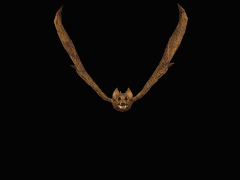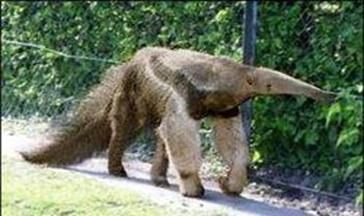


|
Edentata(Xenarthra):
Xenarthra is a group of placental mammals (infraclassis Eutheria), extant today only in the Americas. The origins of the order can be traced back as far as the early Tertiary (about 60 million years ago, or only a short time after the end of the dinosaur era). The presence of these animals in North America is explained by the Great American Interchange. It includes the anteaters, sloths, and armadillos. In the past, these families were classified together with the pangolins and Aardvark as the order Edentata (meaning toothless, because the members do not have front incisor teeth or molars, or have poorly-developed molars). It was subsequently realized that Edentata was polyphyletic—that it contained unrelated families and was thus invalid by cladistic standards. Aardvarks and pangolins are now placed in individual orders, and the new order Xenarthra was erected to group the remaining families (which are all related). The name Xenarthra means "strange joints", and was chosen because their vertebral joints are unlike those of any other mammals. Because they lack characteristics believed to be present in the common ancestor of other known Eutherian mammals, morphological evidence suggests that the Xenarthra are outside the Epitheria, which contains all other known Eutherians today. The morphology of Xenarthrans generally suggests that the anteaters and sloths are closest together within Xenarthra. The order Xenarthra is more and more often divided into two orders: Pilosa, containing the Vermilingua and Folivora (previously Tardigrada), and the separate order Cingulata. Xenarthra now has the rank of cohort or super-order. The Xenarthra are part of the super-cohort Atlantogenata. Though there may be contradictions, we include Ant-eaters also in Edentata.
|
